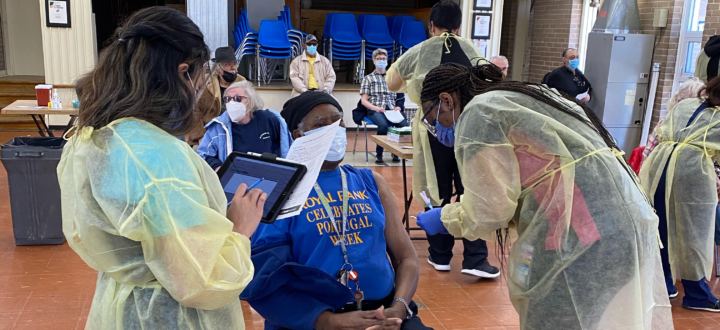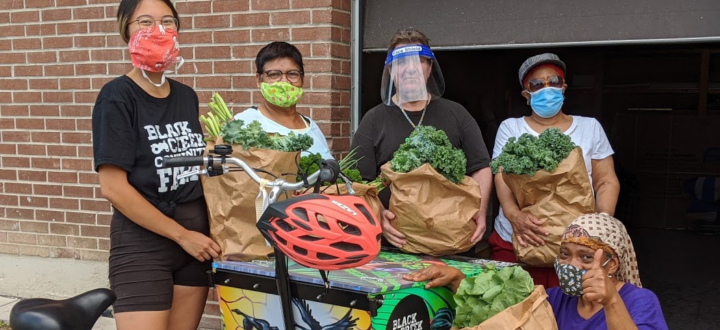Shining a Light on Black Health and Wellness: Pioneering Research on the Impact of Long-COVID for Black People
By Sandra Sualim, President and CEO, Humber River Hospital Foundation
 To make better decisions, we need accurate information. Having data to support the needs of the Black community directly correlates to the delivery of care. Black History Month reminds us that we need to know what impacts the lives of Black people in all areas, and health is a vital topic. Accurate data helps todays researchers figure out the real impact of COVID-19 based on past medical history, background, and geography. To get this data for all people, we need to continue to create an environment that is trustworthy and respectful.
To make better decisions, we need accurate information. Having data to support the needs of the Black community directly correlates to the delivery of care. Black History Month reminds us that we need to know what impacts the lives of Black people in all areas, and health is a vital topic. Accurate data helps todays researchers figure out the real impact of COVID-19 based on past medical history, background, and geography. To get this data for all people, we need to continue to create an environment that is trustworthy and respectful.

COVID-19 has been an eye-opener for the disparities between generally offered healthcare and the needs of racialized communities. Infection rates are disproportionately higher among these communities, including the Black community. Being Black and having low income is associated with an increased risk of hospitalization from COVID-19. Within Toronto, racialized communities, those with lower household incomes, and larger household sizes have disproportionately higher numbers of cases.
To this end, Humber River Hospital has created a research chair under the leadership of Dr. Nadine Akbar, PhD, to focus on the development and evaluation of programs to address health inequities within our community. An immediate area of focus for Dr. Akbar is post COVID-19 condition, more commonly known as Long COVID. Long COVID is the persistence of long-term symptoms (for 12 weeks or longer) following COVID-19 infection. The most common symptoms include fatigue, shortness of breath, brain fog, depression and anxiety. Long COVID very often has a negative impact on daily functioning, with many not being able to return to work. Currently, there are no established guidelines for treating Long COVID, but we know that treatments developed must be made culturally appropriate and suitable to the needs of racialized communities in order to be effective. Our proposed study aims to look at racialized communities to:
- Describe the symptoms and functional impact of living with Long COVID
- Identify the specific needs and barriers related to treatment and rehabilitation
- Further determine whether there are differences across racial groups with regards to symptoms, functional impacts, and needs/barriers
To participate in, donate to, and find out more about this study, please reach out to the lead researcher, Dr. Nadine Akbar at nakbar@hrh.ca.
The more data gathered and investigated, the better our understanding of how we fight Long-COVID for Toronto’s Black community. Together, this contributes to a brighter future with a more balanced offering of healthcare so we can continue to thrive.






